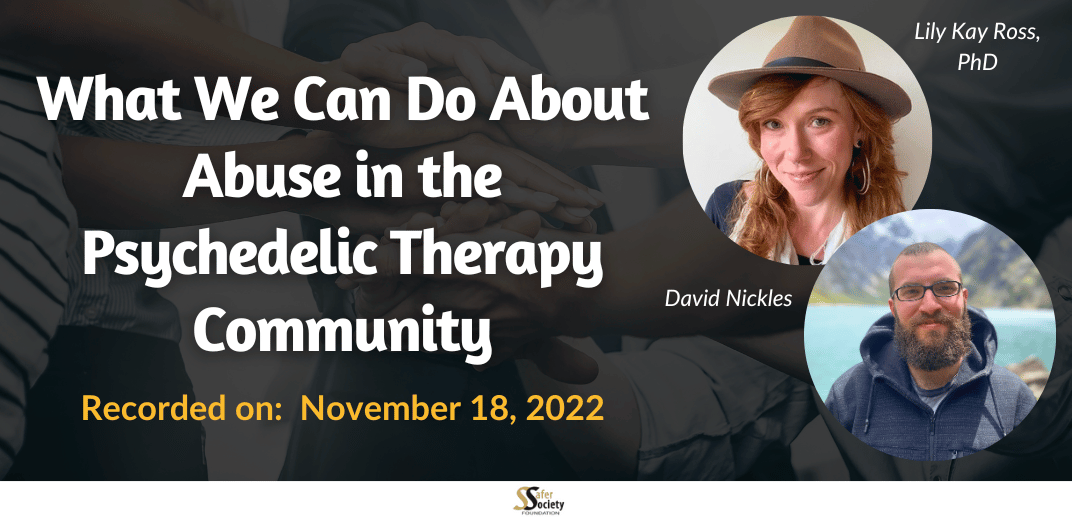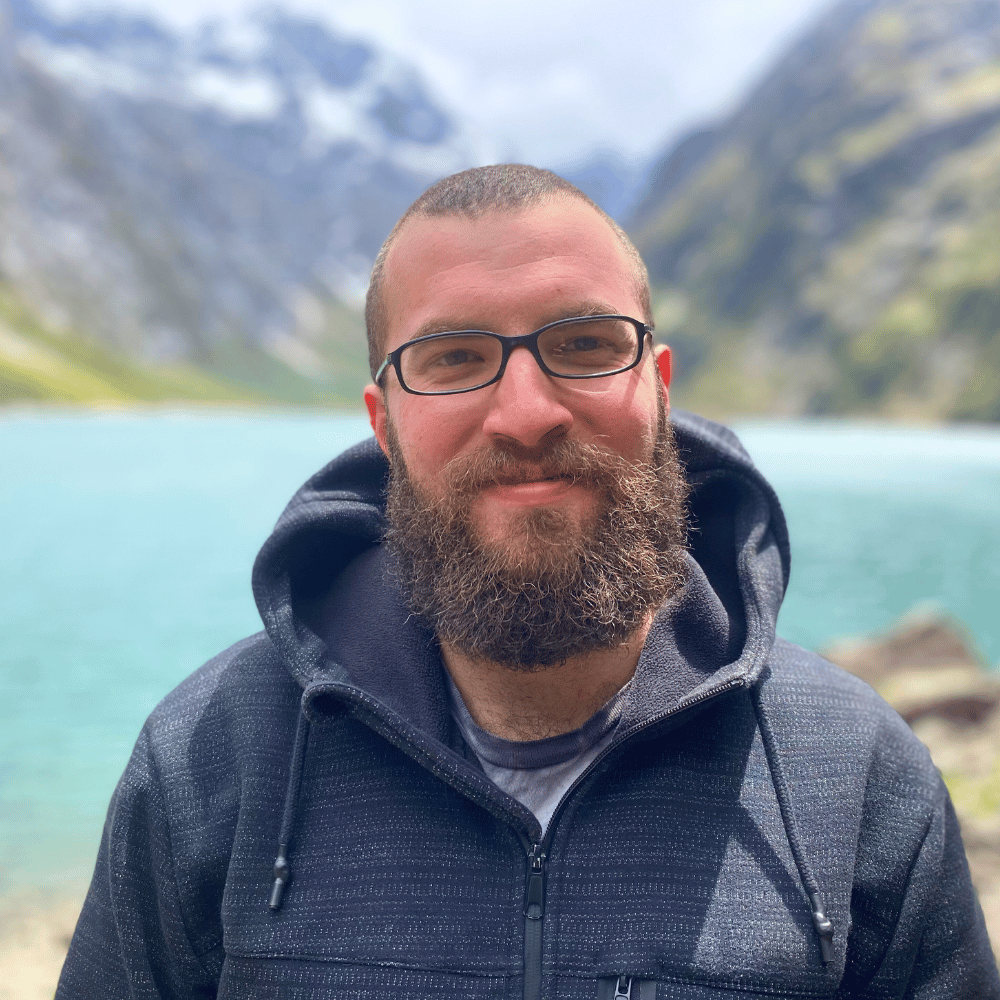
What We Can Do About Abuse in the Psychedelic Therapy Community
This webinar is for professionals, researchers, and individuals interested in the use of psychedelic drugs for the treatment of mental health conditions, particularly PTSD, anxiety, and depression.
The recent explosion of interest in the use of psychedelic drugs to treat PTSD, anxiety, depression, and other conditions has moved faster than the field’s ability to consider and monitor the potential risks involved. Despite the good intentions of many, some professionals have used their authority and the influence of these drugs to abuse, control, manipulate, and steal from clients. While many advocates claim to have implemented safeguards, these have not often been nearly sufficient enough to prevent ongoing harm.
Lily Kay Ross and Dave Nickles have done more than anyone to bring these harms to public awareness. This webinar focuses on what they’ve learned and what we can do to prevent further abuse.
Who's Presenting

Lily Kay Ross, PhD
Lily Kay Ross, PhD is Feminism and Ethics Research Fellow at Psymposia and creator and producer of New York magazine’s Cover Story: Power Trip. She’s been taking a feminist approach to theorizing ethics in psychedelic spaces since 2009, specifically sexual misconduct, abuses of power, charlatans, and the dominance of traditional gender norms. Her PhD research looks at how neoliberal discourses burden victim/survivors of sexual violence with the directive to individually overcome social problems, and the trouble with posttraumatic growth.

David Nickles
David Nickles is Managing Editor of Psymposia, creator and producer of New York magazine’s Cover Story: Power Trip, underground researcher, and harm reduction advocate. David’s work focuses on the social and cultural implications of psychoactive substances, utilizing critical theory and structural analysis to examine the intersections of drugs and society. He is a vocal opponent of the mainstreaming and commodification of psychedelic compounds and rituals, believing that such approaches inherently obscure the liberatory potential of psychedelic experiences.
